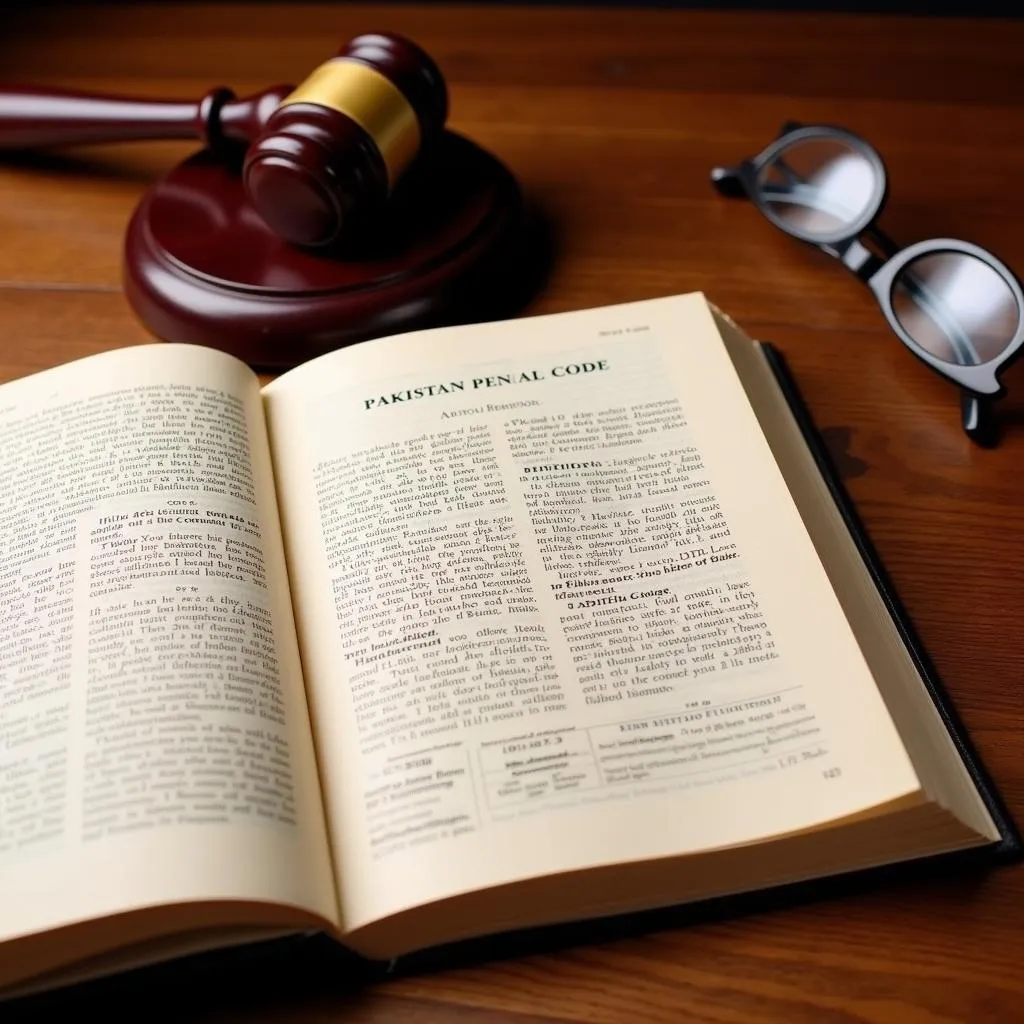Criminal law in Pakistan is a complex and nuanced field, drawing its essence from the Pakistan Penal Code (PPC) of 1860. This comprehensive legal framework defines various criminal offenses, outlines corresponding punishments, and establishes procedures for criminal proceedings within the country. The PPC, while rooted in colonial history, has undergone numerous amendments and interpretations through landmark judgments to remain relevant to contemporary Pakistani society.
Understanding the Basics of Criminal Law in Pakistan
At its core, criminal law seeks to maintain order, protect citizens, and punish those who violate established rules. Unlike civil law, which primarily addresses disputes between individuals, criminal law focuses on offenses considered harmful to society as a whole. The State, representing the collective, becomes the plaintiff in criminal cases, bringing charges against individuals or entities accused of wrongdoing.
Key Principles of Criminal Law in Pakistan
Several fundamental principles underpin the Pakistani criminal justice system, ensuring fairness and safeguarding individual rights:
- Presumption of Innocence: Every person accused of a crime is considered innocent until proven guilty in a court of law. The burden of proof lies with the prosecution to establish guilt beyond a reasonable doubt.
- Fair Trial: Every accused person has the right to a fair and public trial, ensuring transparency and adherence to due process. This includes the right to legal representation, the opportunity to cross-examine witnesses, and the right to appeal against a verdict.
- No Double Jeopardy: An individual cannot be tried twice for the same offense once a court of competent jurisdiction has acquitted them. This principle prevents harassment and ensures finality in legal proceedings.
- Proportionality of Punishment: Punishments for criminal offenses must be proportionate to the severity of the crime. The law prescribes specific punishments for various offenses, ensuring consistency and preventing arbitrary sentencing.
Exploring the Pakistan Penal Code (PPC) PDF
The Pakistan Penal Code, available in PDF format for easy accessibility, serves as the bedrock of criminal law in the country. This comprehensive document encompasses a wide array of offenses, ranging from minor infractions to serious crimes.
Major Offenses Covered in the PPC
- Offenses against the Human Body: This category includes crimes like murder, culpable homicide, assault, kidnapping, and abduction, outlining different degrees of severity and corresponding punishments.
- Offenses against Property: This section covers offenses such as theft, robbery, extortion, criminal breach of trust, and mischief, defining various forms of property infringement and their legal consequences.
- Offenses against the State: This category encompasses serious crimes like sedition, waging war against Pakistan, and terrorism, reflecting the State’s interest in protecting its sovereignty and security.
- Offenses against Public Tranquility: These offenses involve actions that disrupt public peace and order, such as rioting, unlawful assembly, and public nuisance.
- Offenses against Marriage and Family: This section deals with crimes related to marriage, divorce, and family relations, including offenses like bigamy, adultery, and dowry-related crimes.
 Pakistan Penal Code Book
Pakistan Penal Code Book
Criminal Procedure Code (CrPC) and Its Significance
Complementing the PPC, the Criminal Procedure Code (CrPC) outlines the procedures for investigating, prosecuting, and adjudicating criminal offenses in Pakistan. It establishes the framework for the entire criminal justice process, from the initial filing of a complaint to the execution of a sentence.
Key Aspects of the CrPC
- Powers of the Police: The CrPC defines the powers and responsibilities of the police in investigating crimes, including the authority to arrest suspects, conduct searches, and collect evidence.
- Rights of the Accused: The CrPC safeguards the rights of accused persons throughout the criminal justice process, including the right to remain silent, the right to legal counsel, and the right to bail.
- Trial Procedures: The CrPC outlines the procedures for conducting trials in criminal cases, including rules of evidence, examination of witnesses, and the role of the judge and jury.
- Sentencing and Appeals: The CrPC provides guidelines for sentencing convicted offenders, outlining various punishments and the process for appealing against convictions and sentences.
Finding a Reliable Criminal Law in Pakistan PDF
To access an authentic and up-to-date version of the Pakistan Penal Code and the Criminal Procedure Code, it is crucial to rely on reputable sources:
- Government Websites: The official websites of the Pakistani government, such as the Ministry of Law and Justice, often provide access to legal documents, including the PPC and CrPC in PDF format.
- Legal Databases: Reputable legal databases and online libraries, often accessible through subscriptions, offer a comprehensive collection of legal resources, including Pakistani laws and statutes.
- Law Publishers: Established law publishers in Pakistan produce and distribute legal texts, including updated versions of the PPC and CrPC, ensuring accuracy and reliability.
 Legal Professional Researching Pakistan Laws
Legal Professional Researching Pakistan Laws
Conclusion
Understanding criminal law in Pakistan is essential for every citizen, ensuring awareness of their rights and responsibilities within the legal framework. The Pakistan Penal Code, readily available in PDF format, serves as a comprehensive guide to criminal offenses, punishments, and procedures. By familiarizing themselves with these legal provisions, individuals can navigate the legal system with greater confidence and protect their rights effectively.
FAQs about Criminal Law in Pakistan
1. What is the difference between murder and culpable homicide in Pakistan’s criminal law?
2. How does the criminal justice system in Pakistan protect the rights of victims?
3. What are the different types of punishments that can be imposed under Pakistani criminal law?
4. What is the role of Islamic law in shaping criminal law in Pakistan?
5. How can I find a lawyer specializing in criminal law in Pakistan?
For any inquiries or assistance regarding legal matters in Pakistan, please contact our team at +923337849799, or email us at news.pakit@gmail.com. You can also visit our office located at Dera Ghazi Khan Rd, Rakhni, Barkhan, Balochistan, Pakistan. Our dedicated customer support team is available 24/7 to assist you.